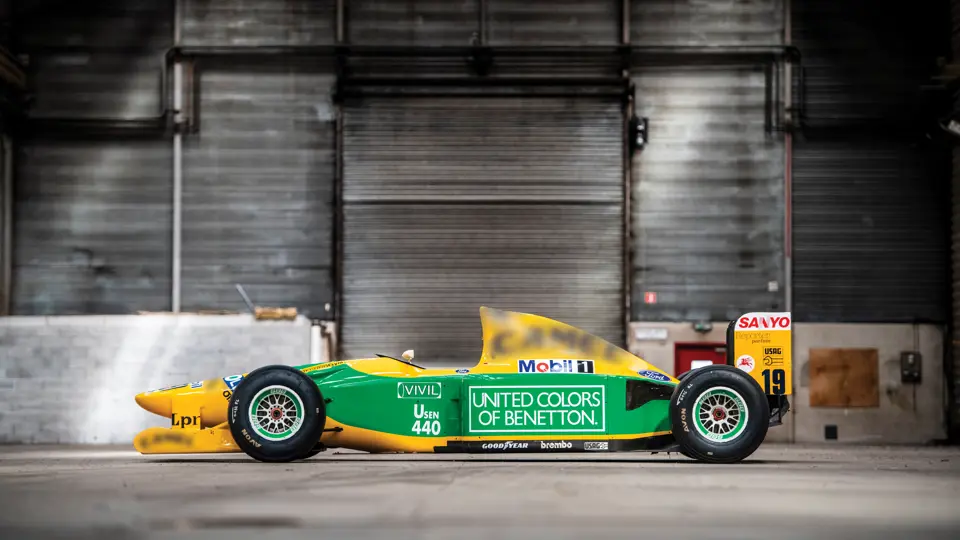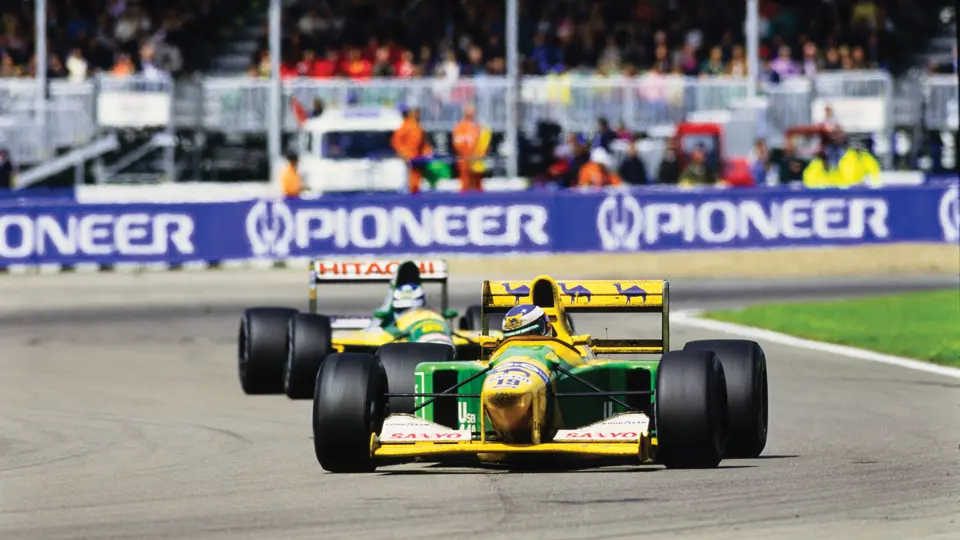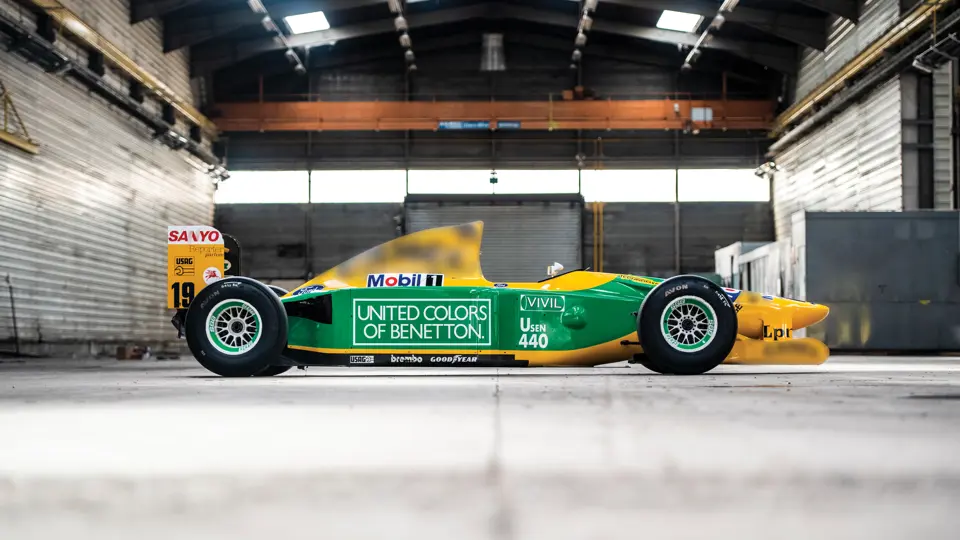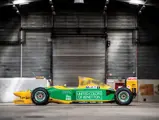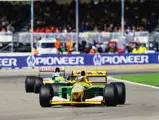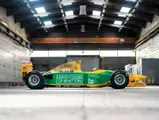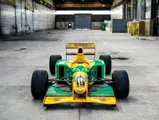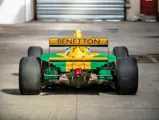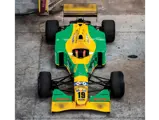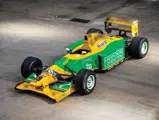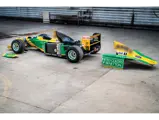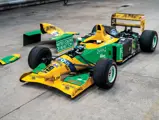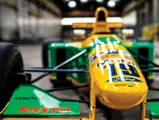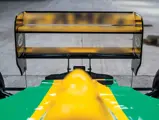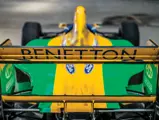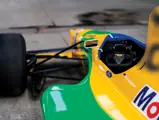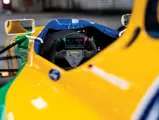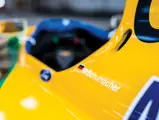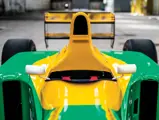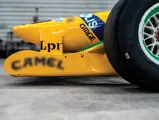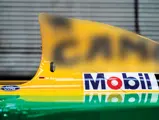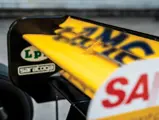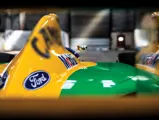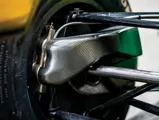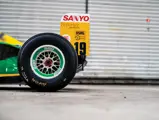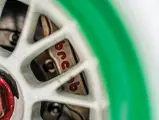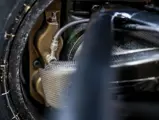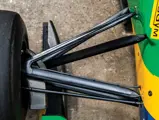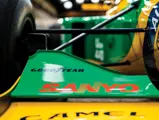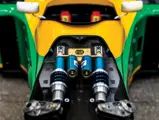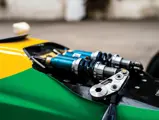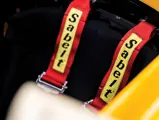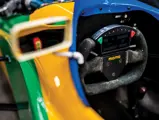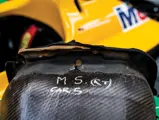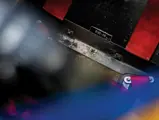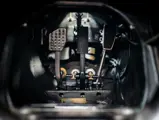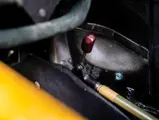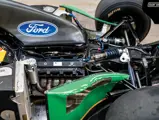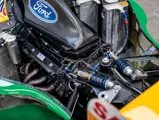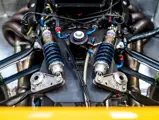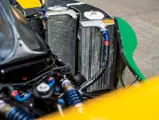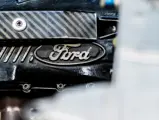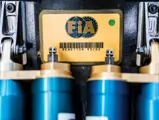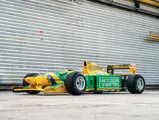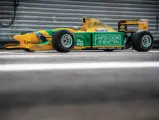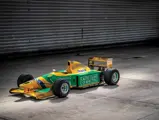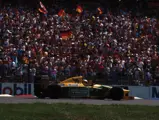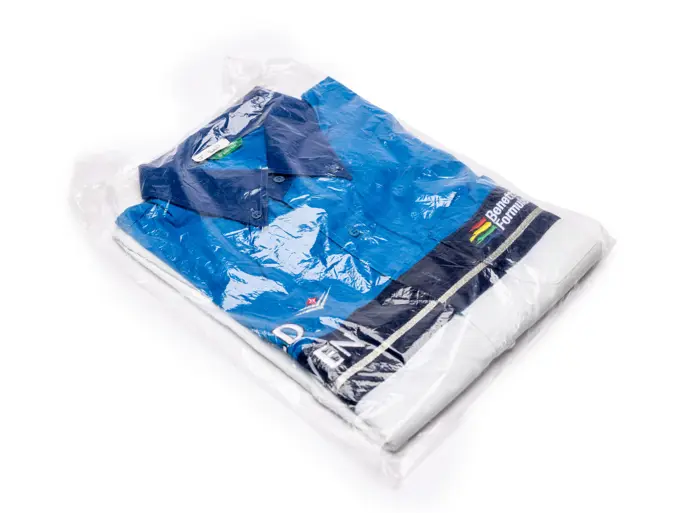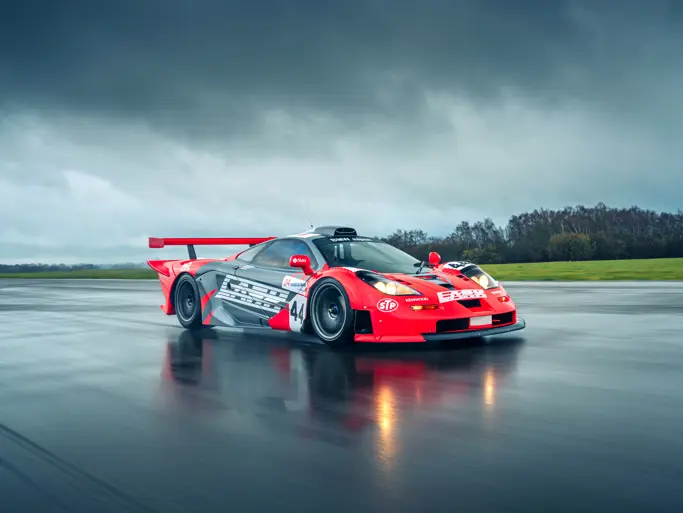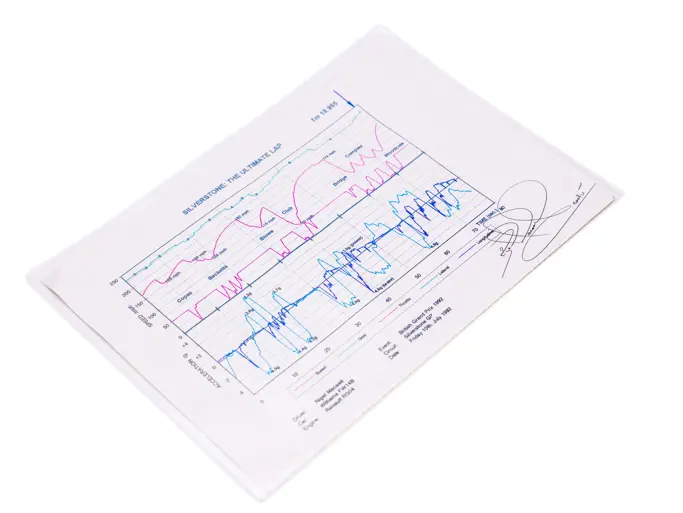
1992 Benetton B192
{{lr.item.text}}
$825,000 - $1,100,000 USD | Not Sold
{{bidding.lot.reserveStatusFormatted}}
- Used by Michael Schumacher in the 1992 FIA Formula One World Championship
- Driven by Schumacher to 3rd place in German and Italian Grands Prix, and 4th in Great Britain
- Used as team spare car in Belgian, Portuguese, Japanese, and Australian Grands Prix
- Immaculately presented, with correct specification LPE-built Ford HB V8 engine
- Ideal for Boss GP and HSR Historic races and numerous demonstration events
With its purchase of the ailing Toleman team in 1985, Italian fashion giant Benetton acquired the services of arguably their greatest asset—brilliant South African–born designer Rory Byrne. After years of under-investment, Byrne finally had a meaningful design budget at his disposal, his no-nonsense BMW Turbo-powered B186 design handing his Italian paymasters a debut win in their first full season of team ownership. For the next decade, Byrne’s genius would come to dominate Benetton’s drawing office, aerodynamic efficiency and relatively conservative technical solutions being cornerstones of his design philosophy.
Having started the 1992 Formula One season with an updated ‘B’ version of the previous year’s B191 model, Benetton introduced their new Byrne-designed B192 chassis from the fourth round onwards, in Spain. Although broadly following the same design parameters as the B191—with pushrod suspension in front and rear, Ford HB V8 power, and a noticeable lack of either semi-automatic gearbox or active suspension—it was immediately apparent that the car was a considerable improvement on its elder siblings. Indeed, lead driver Michael Schumacher duly rewarded the team with a 2nd-place finish on its debut behind Mansell’s all-conquering Williams-Renault. A 4th-place finish at Monaco and a further 2nd place in Canada for Schumacher—accompanied by a 4th in San Marino and a 5th in Monaco courtesy of teammate Martin Brundle—maintained the new car’s encouraging form and gave the team grounds for optimism as they approached the second half of the season.
This particular chassis, B192-06, was used as Schumacher’s designated race chassis in the British, German, and Italian Grands Prix, and latterly as the team’s spare car in a further four Grands Prix. At Silverstone, Mansell took pole by almost two seconds from teammate Riccardo Patrese, who in turn was almost a second ahead of 3rd-placed Ayrton Senna’s McLaren-Honda. Schumacher was a solid 4th in B192-06, the potential matchup between Senna and him providing the main talking point of the weekend, given the otherworldly pace of the Williams-Renaults. As expected, Mansell cruised to his seventh win in nine races, some 39 seconds ahead of Patrese, whilst a frustrated Schumacher came home 4th in B192-06 behind teammate Martin Brundle, having been delayed following an earlier altercation with Stefano Modena’s Jordan.
The prodigiously fast Hockenheim circuit was always likely to highlight the power deficit of the Benetton’s Ford HB engine relative to the multi-cylinder Renault, Honda, and Ferrari power units—and so it proved after qualifying for the German Grand Prix. Once again, the Williams-Renaults were the class of the field, although the McLarens of Senna and Berger were closer to the pace than had been the case at Silverstone. The Ferrari of Jean Alesi took 5th place on the grid with a phlegmatic Schumacher alongside, once again at the wheel of B192-06. Racing in front of his home crowd for the first time, Schumacher delighted them by passing Alesi off the line and later benefitted from Berger’s delayed pit stop and a last-lap spin by Patrese to take a deserved 3rd place. As was becoming customary by now, the race was won by Mansell—taking him to the brink of an elusive first World Championship—with Senna in 2nd.
Although Mansell had wrapped up the championship in Hungary—with five of the 16 races on the calendar to spare—the teams travelled to the picturesque Spa-Francorchamps circuit in Belgium at the end of August still with much to play for. The ‘best of the rest’ battle between Senna, Patrese, and Schumacher was still very much alive, and on this occasion, B192-06 was relegated to spare-car duties, with B192-05 Schumacher’s nominated chassis for the weekend. A masterful drive—aided by some inspired pit work by his team in response to the notoriously fickle Ardennes weather—led to a brilliant debut Grand Prix win for both Schumacher and the B192, the first for a German driver since Jochen Mass in 1975.
The final race in B192-06’s relatively brief but illustrious career was at the Italian Grand Prix at Monza in mid-September. Given the similarities in layout between Hockenheim and Monza, it was perhaps not surprising that Schumacher once again found himself a relatively lowly 6th after qualifying, with Mansell once again having annexed pole comfortably—his eleventh of the season. After a torrid first lap in which he selected the wrong gear at the start and then had to pit for emergency repairs following a first-corner collision, Schumacher once again confirmed his status as Formula One’s emerging talent with a brilliant drive to finish 3rd. For only the second time that year, Mansell had to retire following an electrical failure, leaving Senna to win the race comfortably from Brundle in the sister Benetton.
The final three races of the 1992 season saw B192-06 once again used as a team spare, with Schumacher ending the year a highly creditable 3rd in the Drivers’ standings—ahead of his hero, Ayrton Senna, no less—and Brundle 6th. The relatively low-tech evolutionary design approach of Rory Byrne and technical director Ross Brawn had been thoroughly vindicated and would be repeated in 1993. Significantly, both the design team and the approach would underpin Schumacher’s World Drivers’ Championships with the team in 1994 and 1995 as well.
Following the conclusion of its contemporary career, chassis B192-06 remained with the Benetton team for some years prior to its sale to accomplished UK-based Historic and BOSS Formula racer Matthew Mortlock. His F1Sales.com operation sold the car to French enthusiast Joel Riviere of Prestige Racing in March 2010, who in turn sold it to the vendor in February 2017.
Beautifully presented in its original eye-catching Benetton/Camel race livery, it retains a correct specification Langford Performance Engineering Ford HB V8 engine and six-speed sequential gearbox, and is ready for immediate use in the plethora of Historic race and demonstration events for which it is eligible.




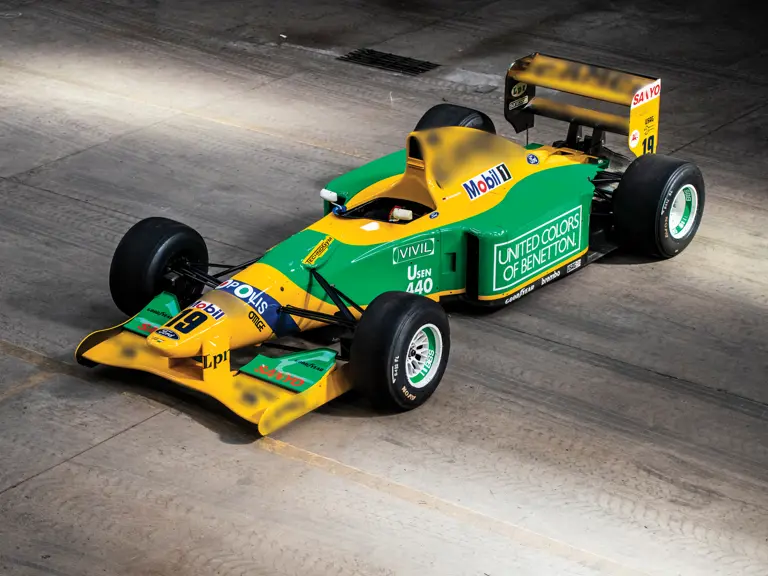
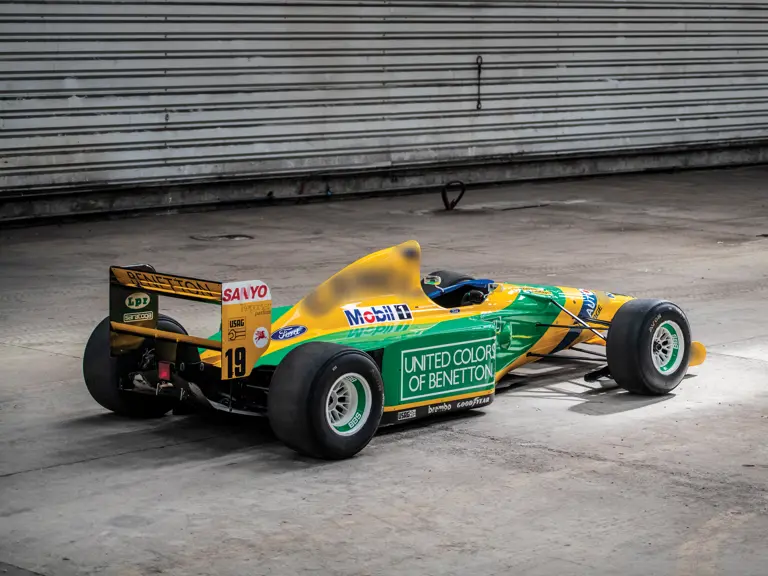
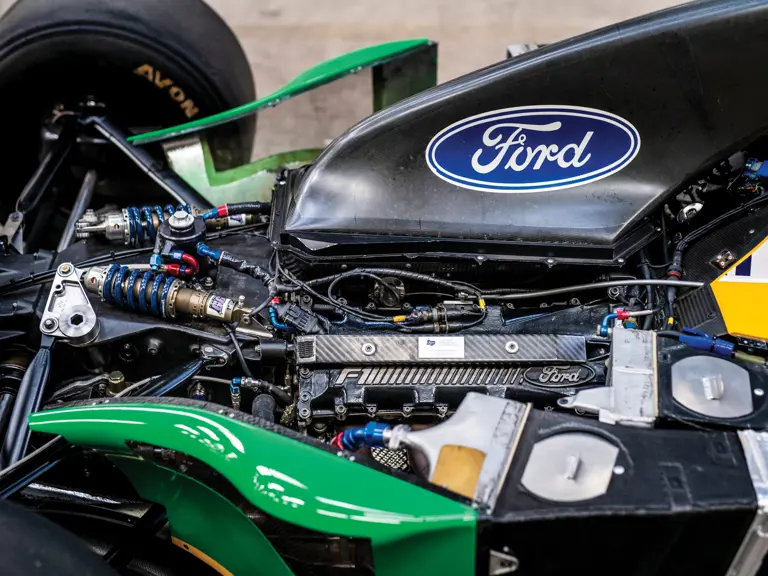
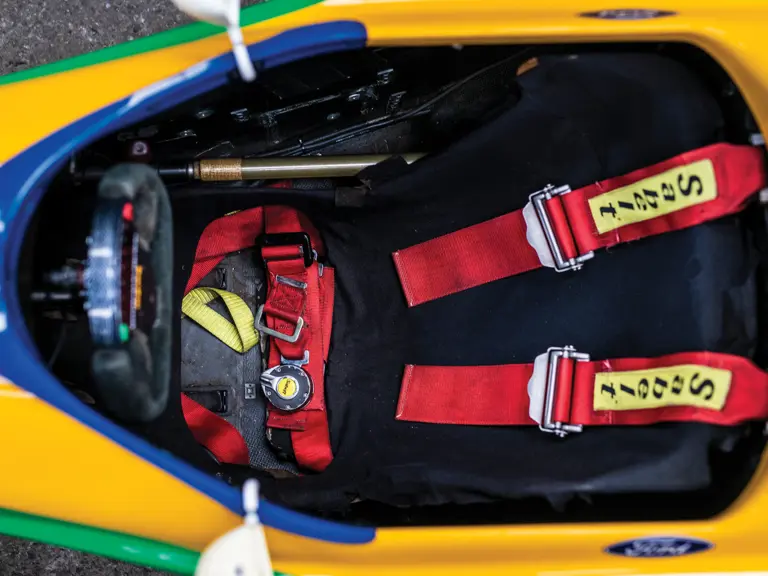
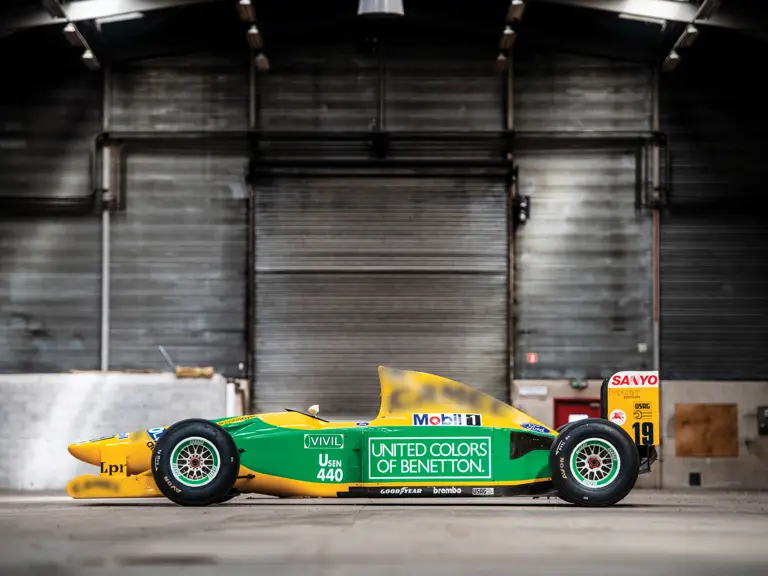
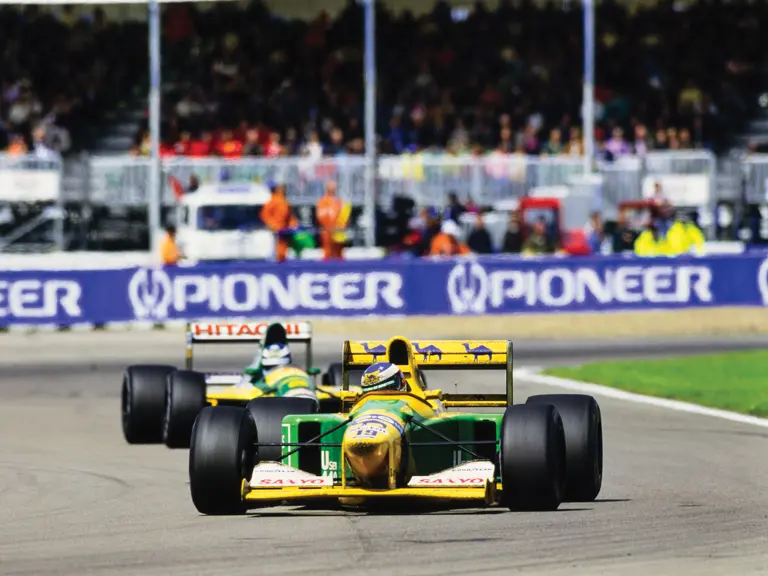
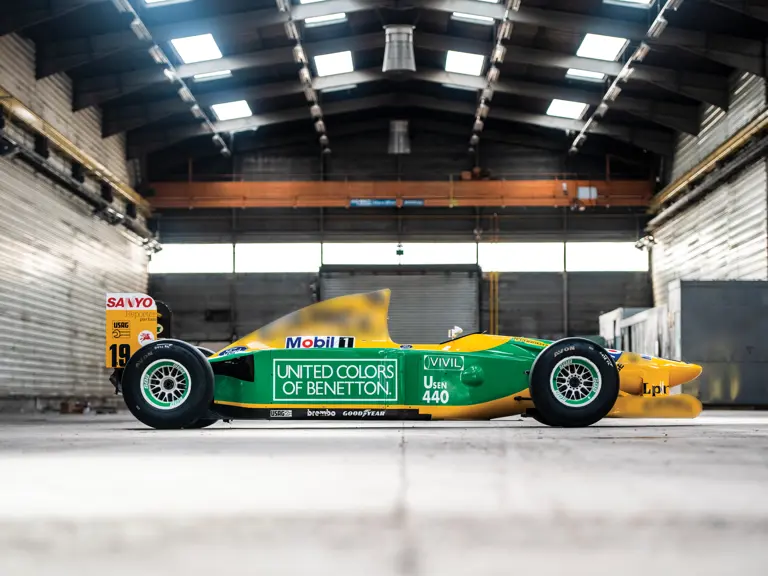
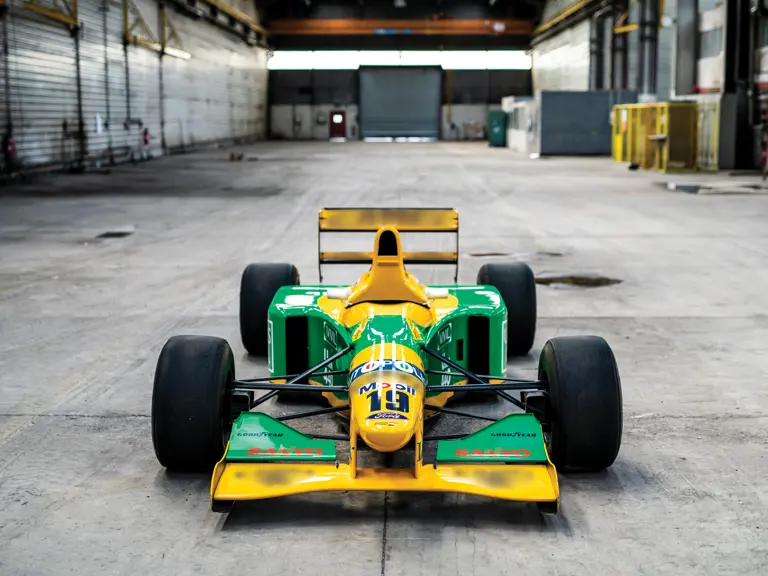
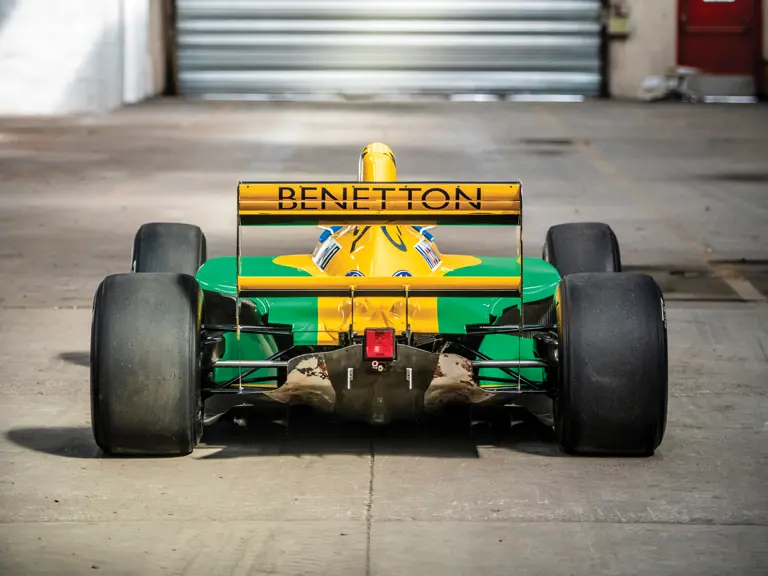
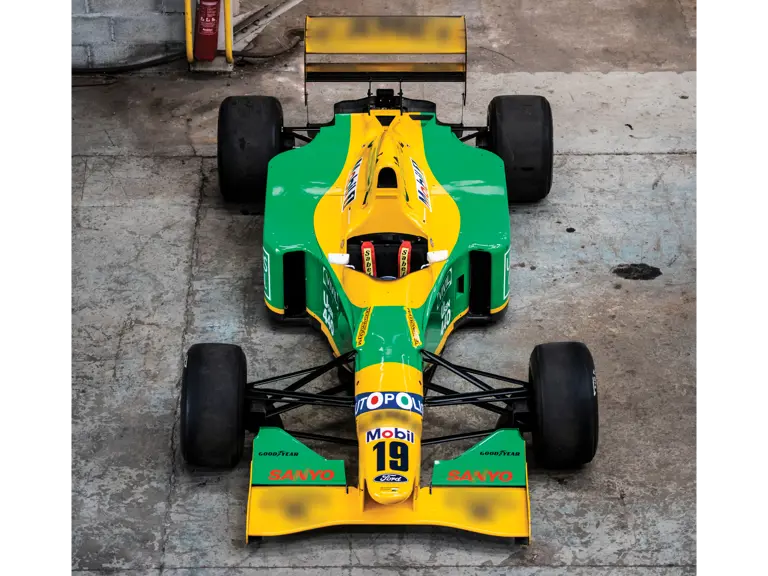
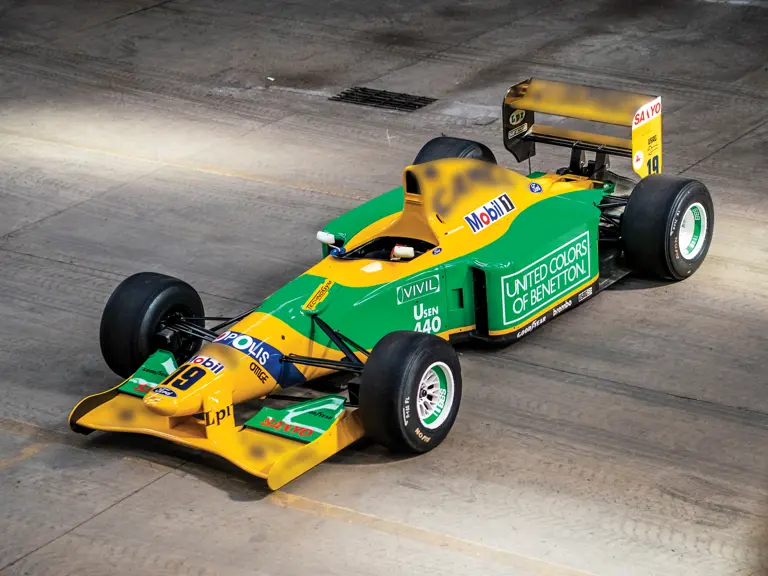
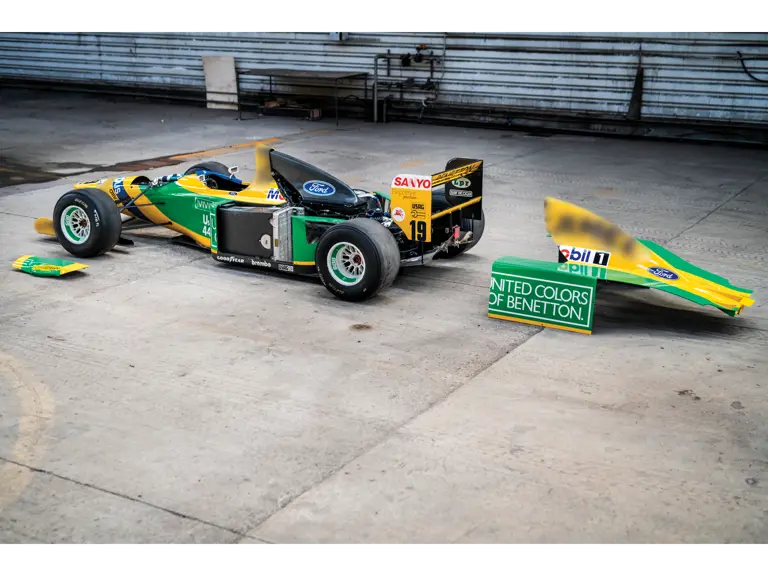
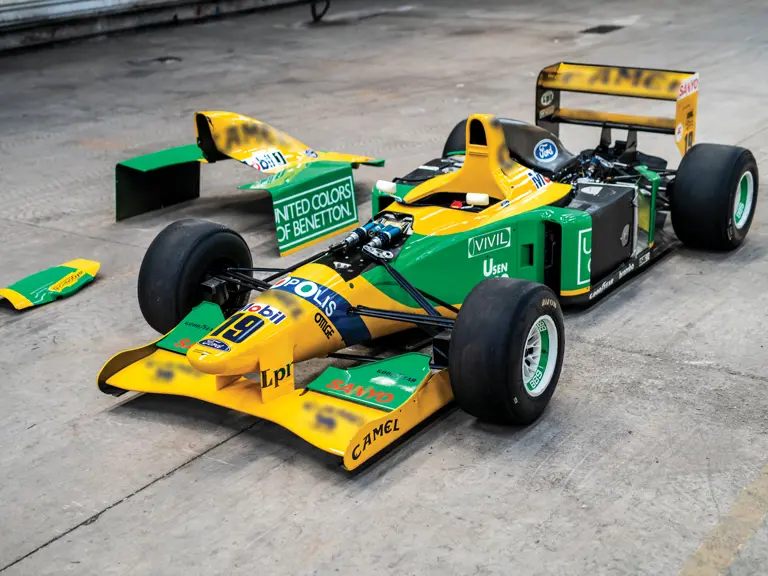
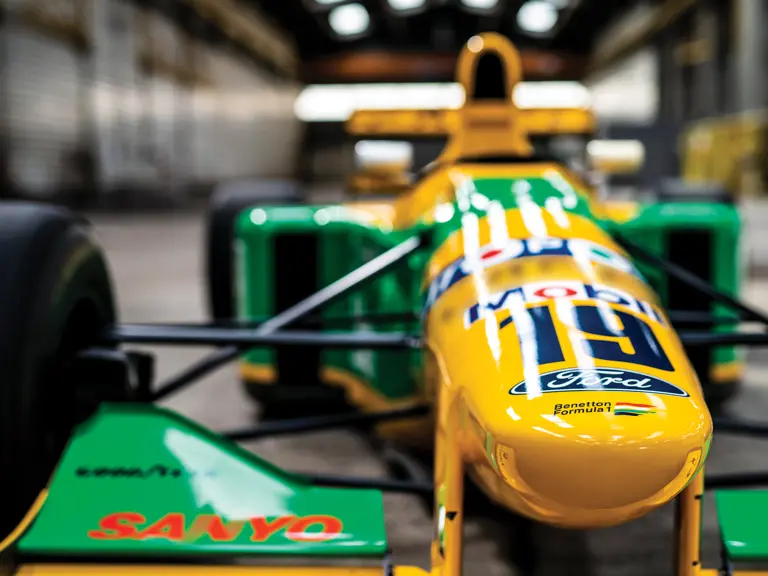
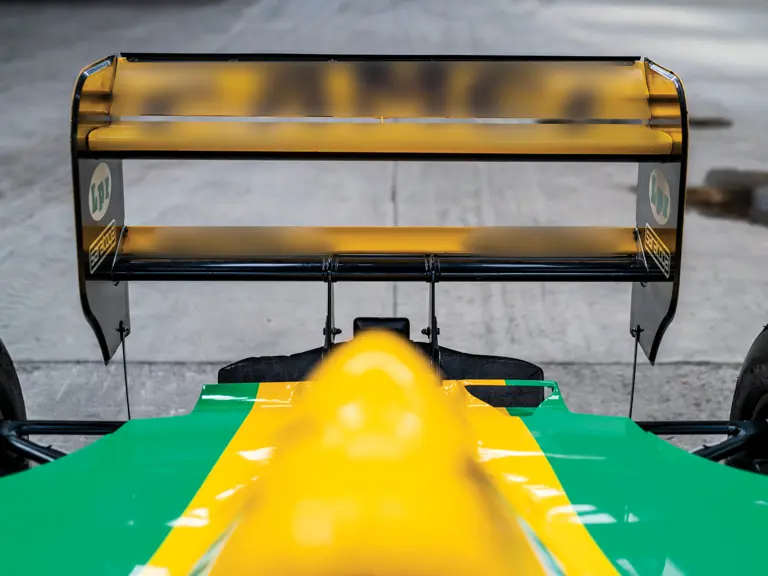
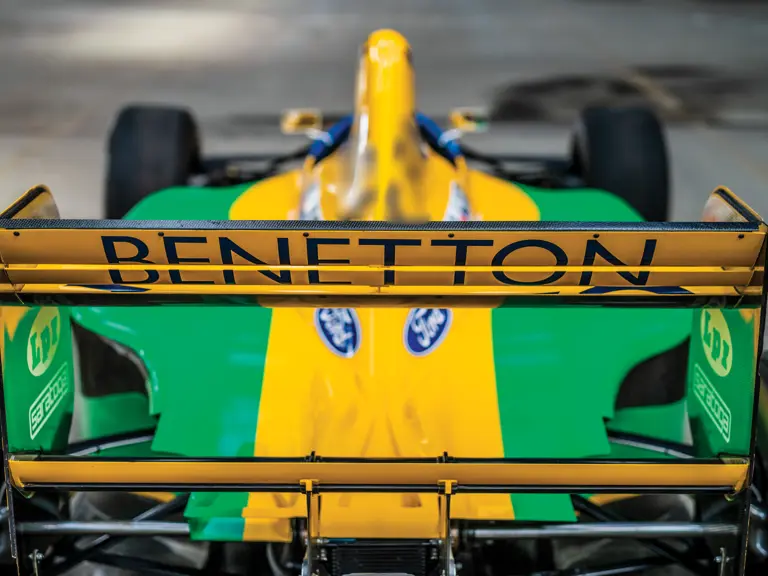
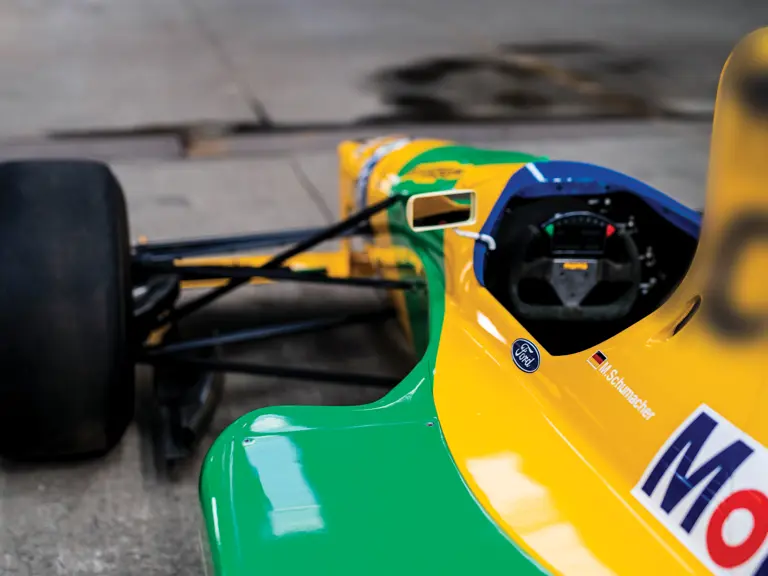
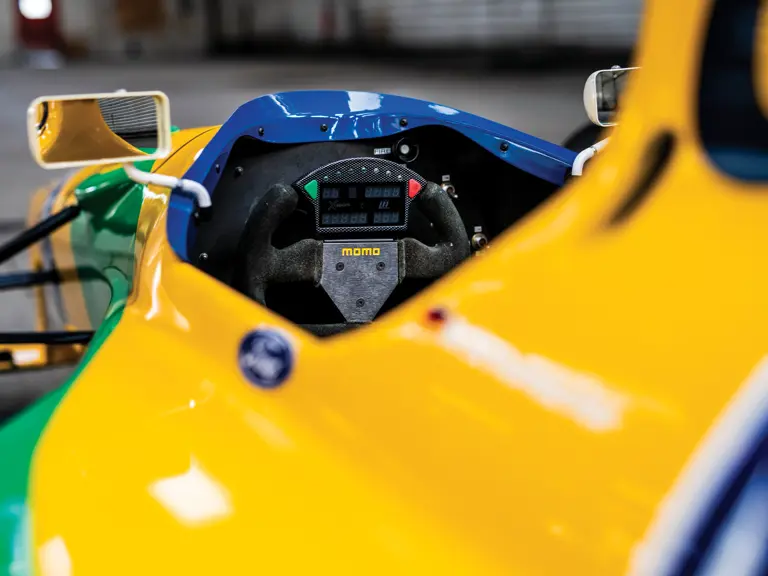
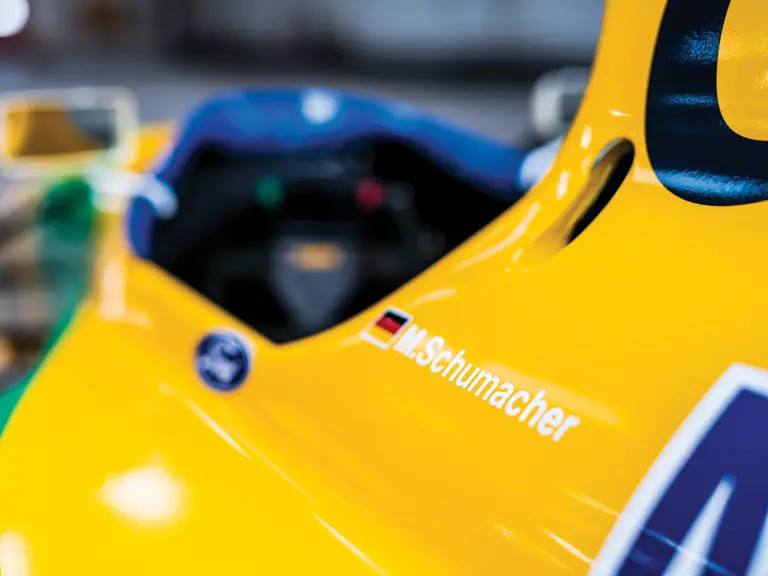
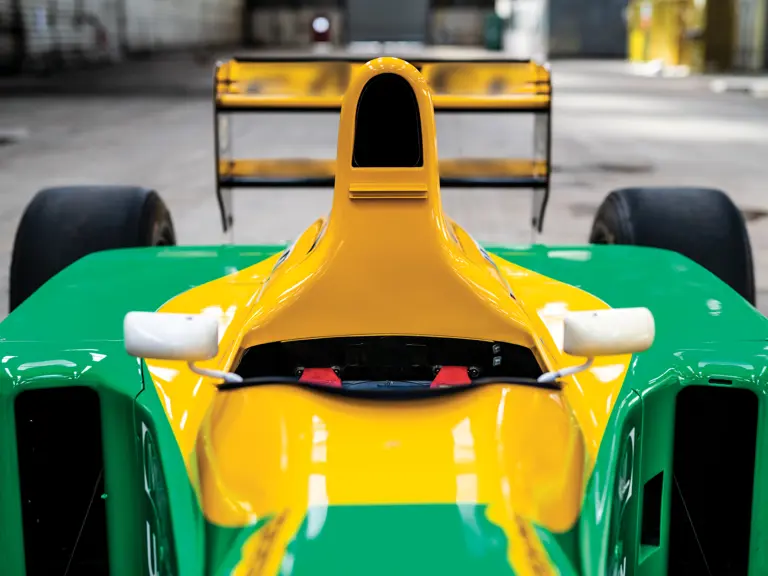
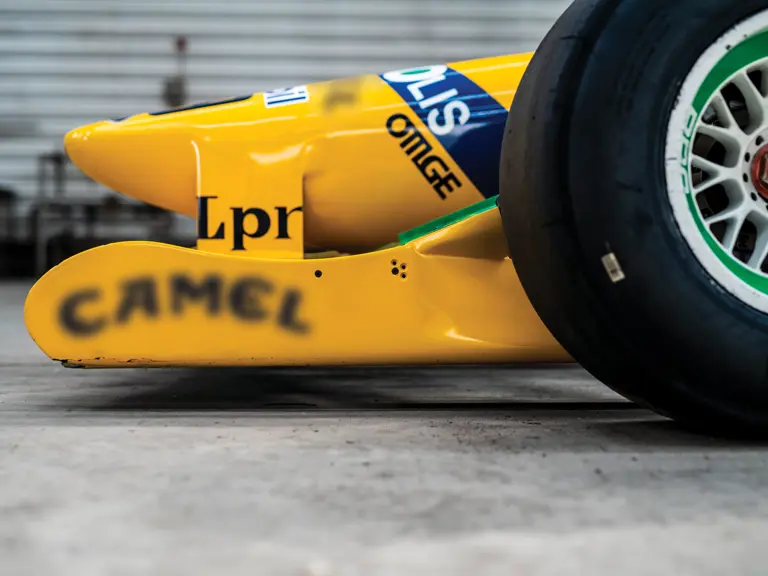
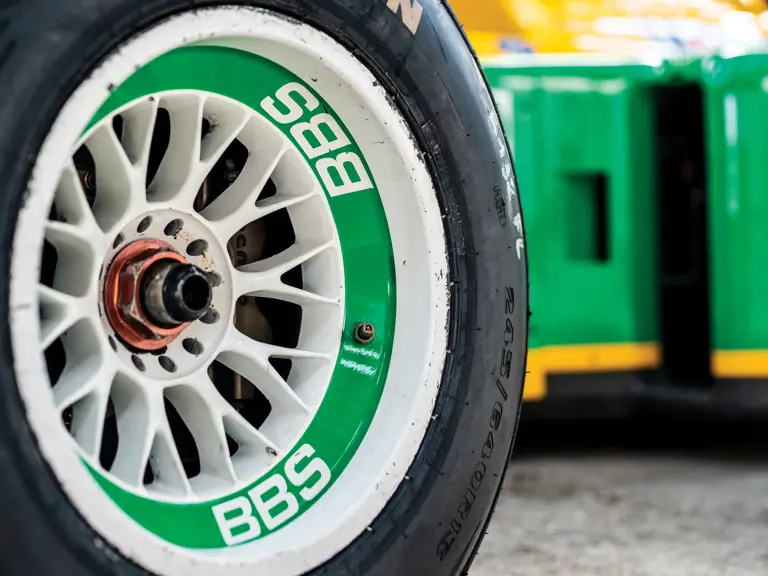
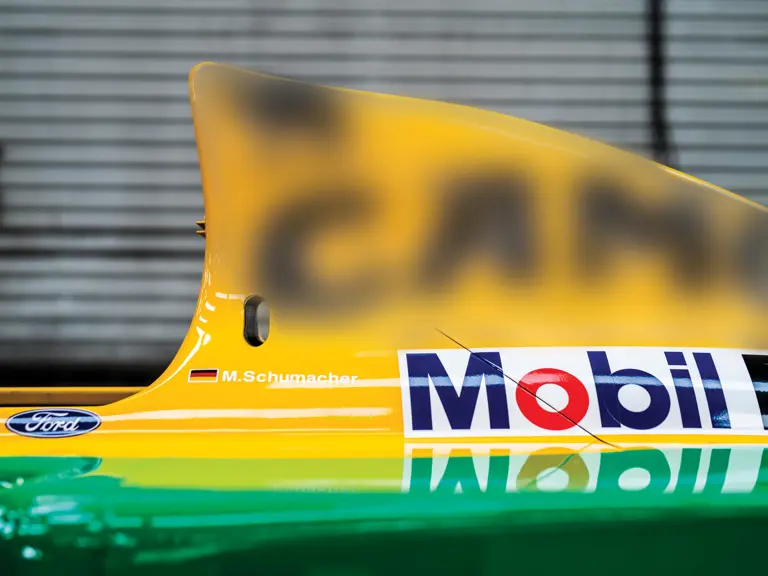
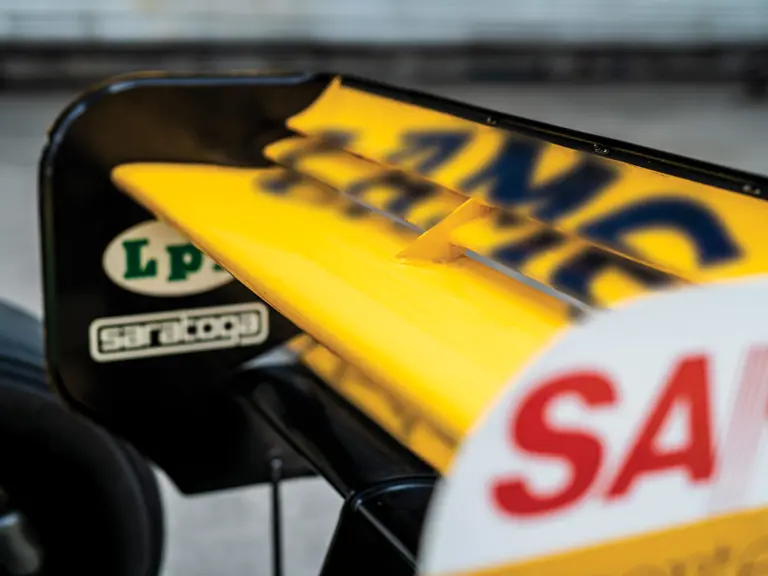
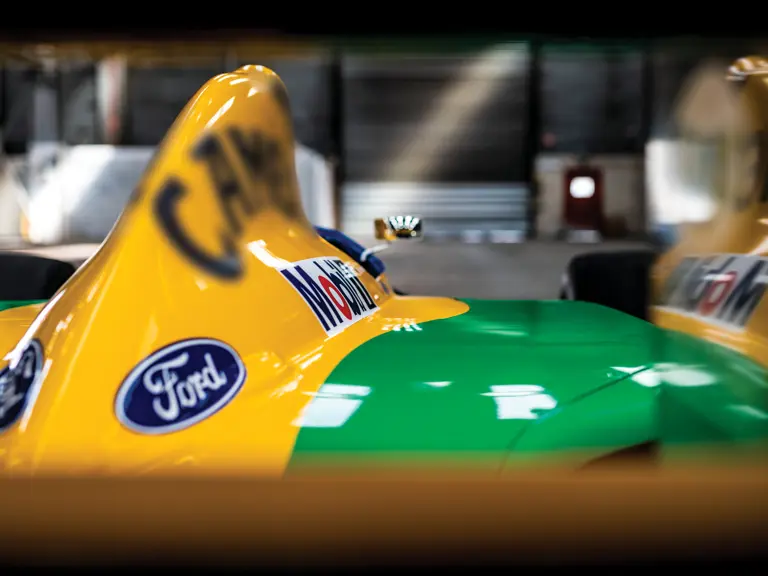
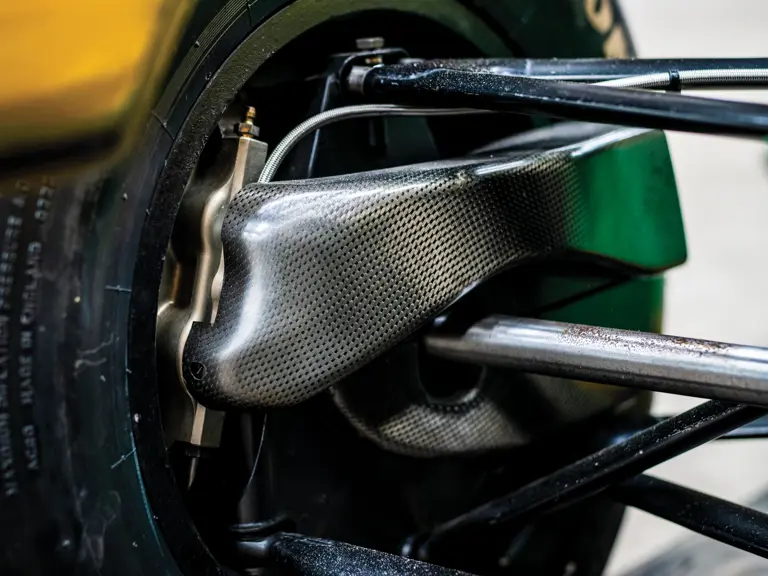
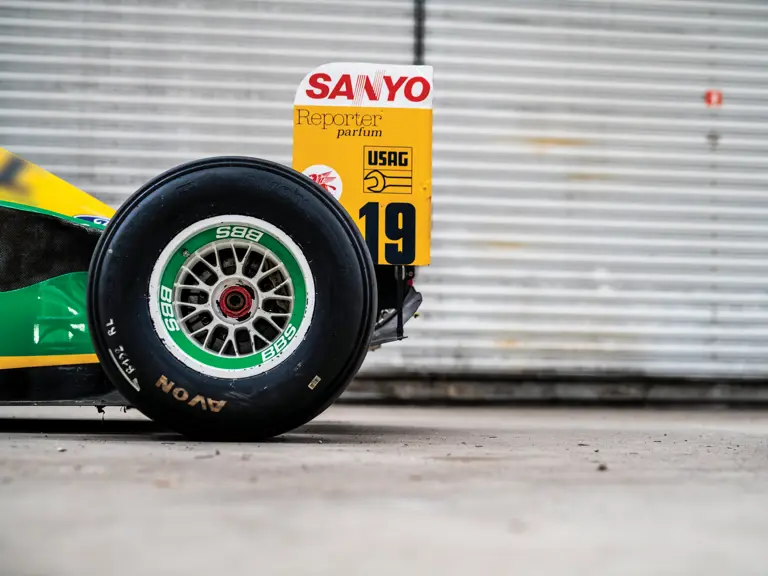
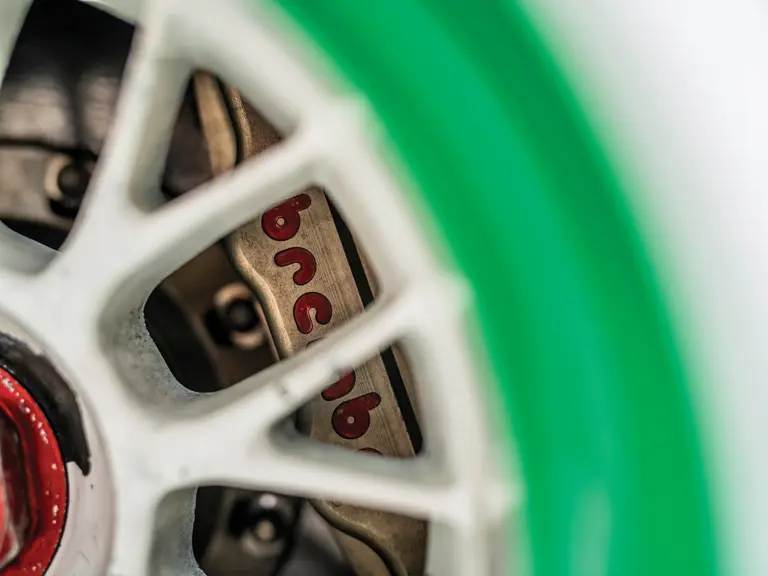
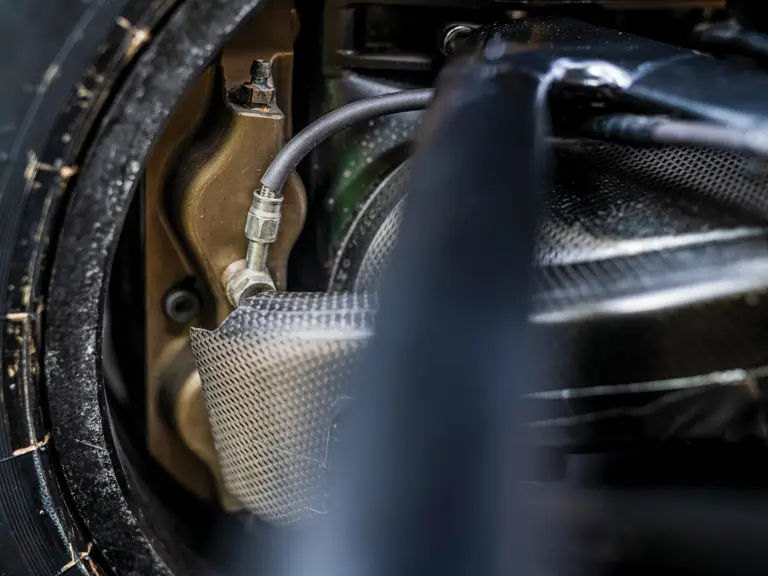
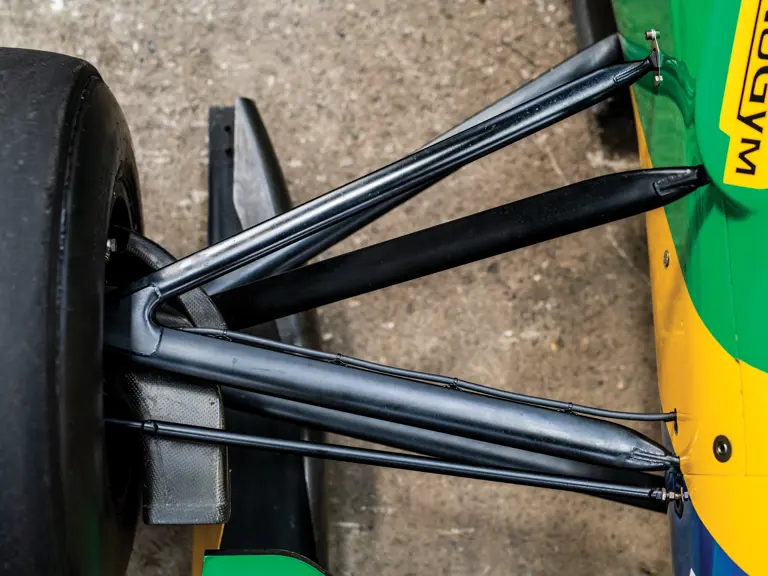
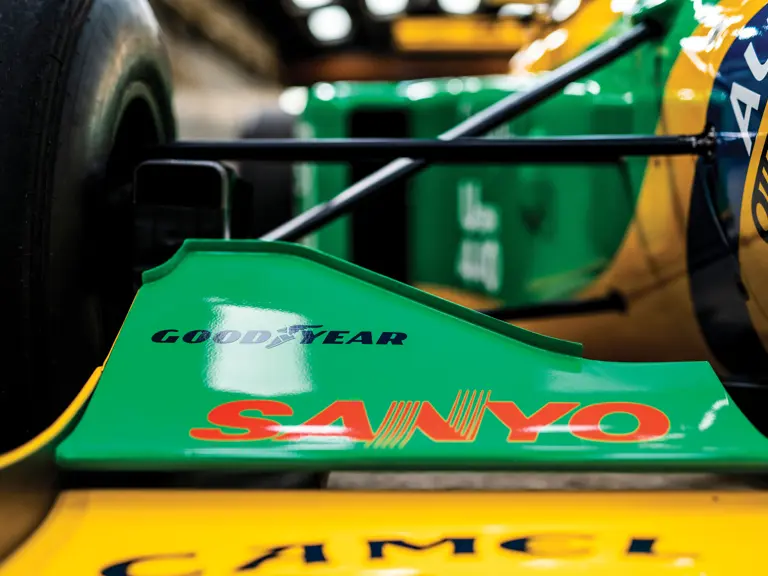
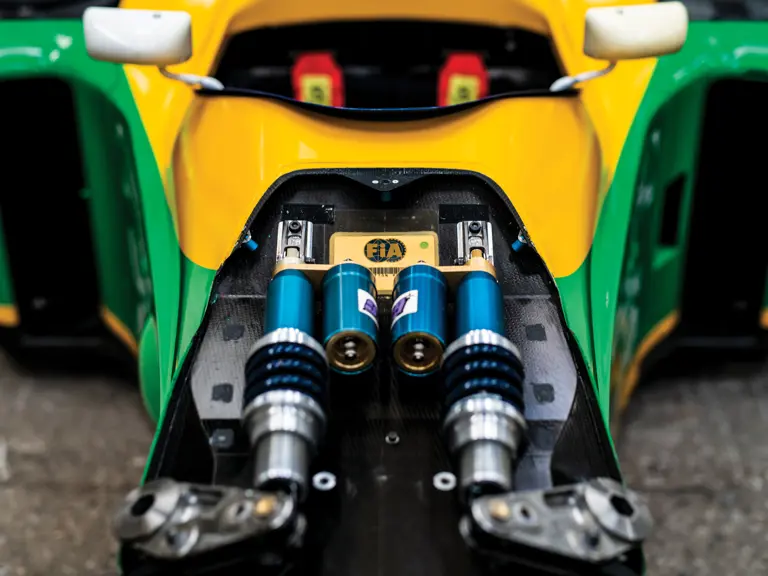
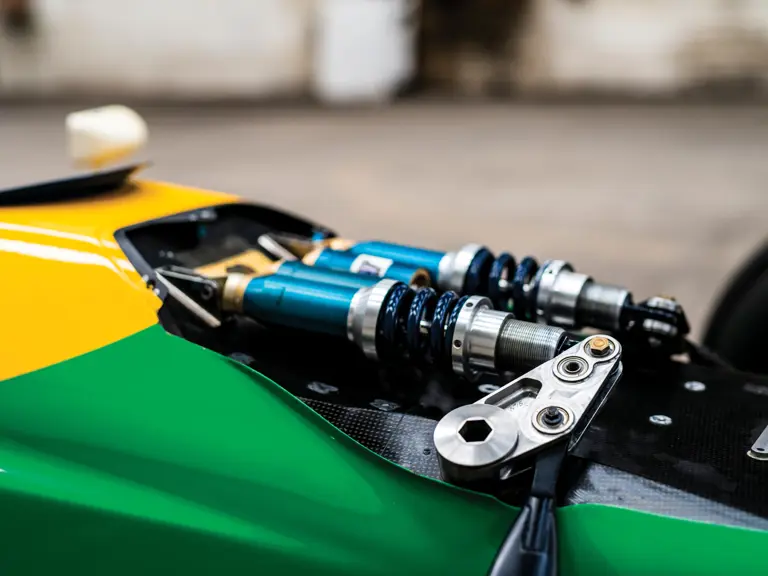
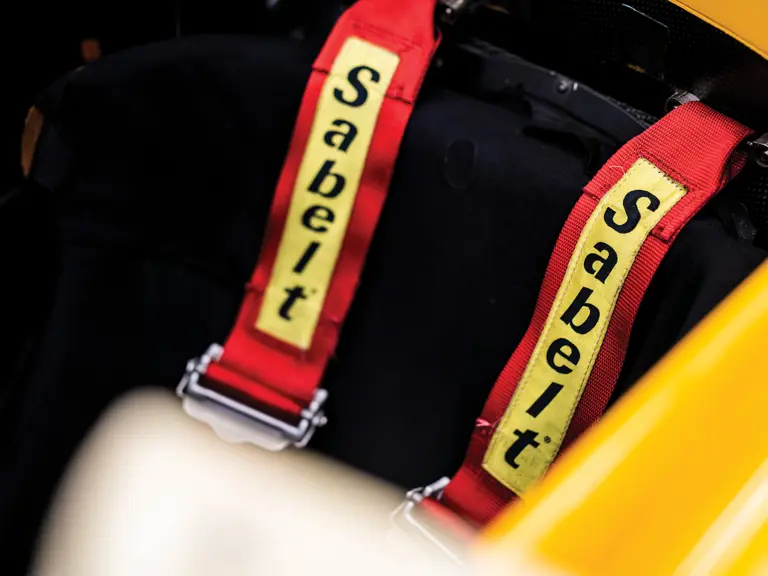
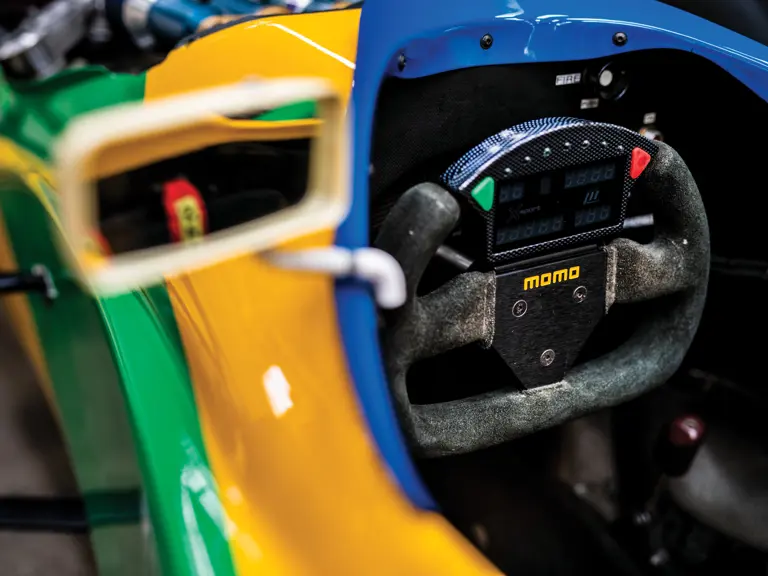
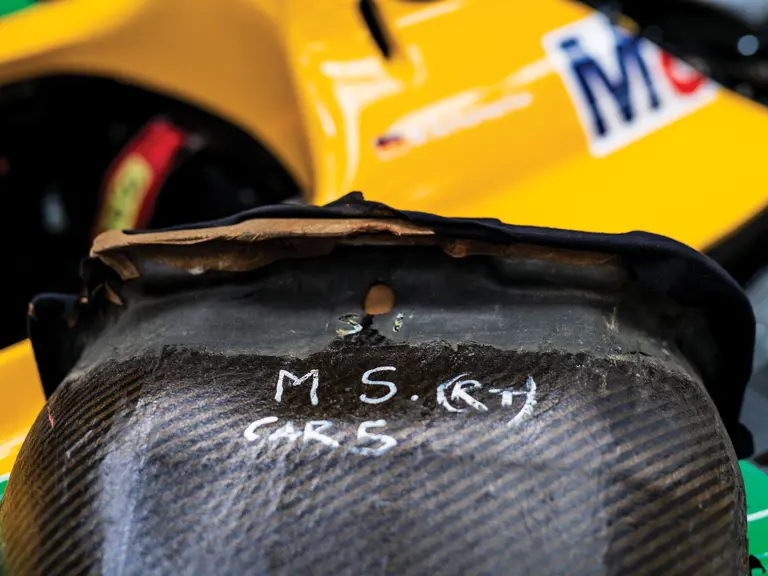
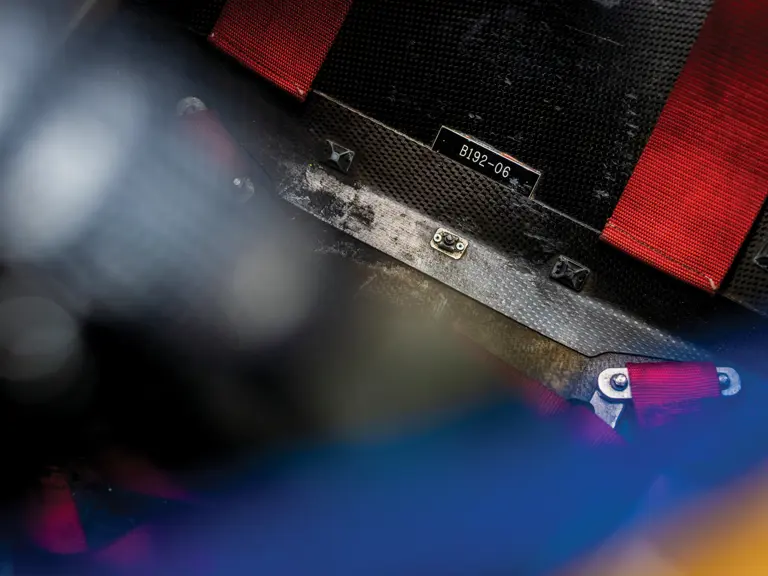
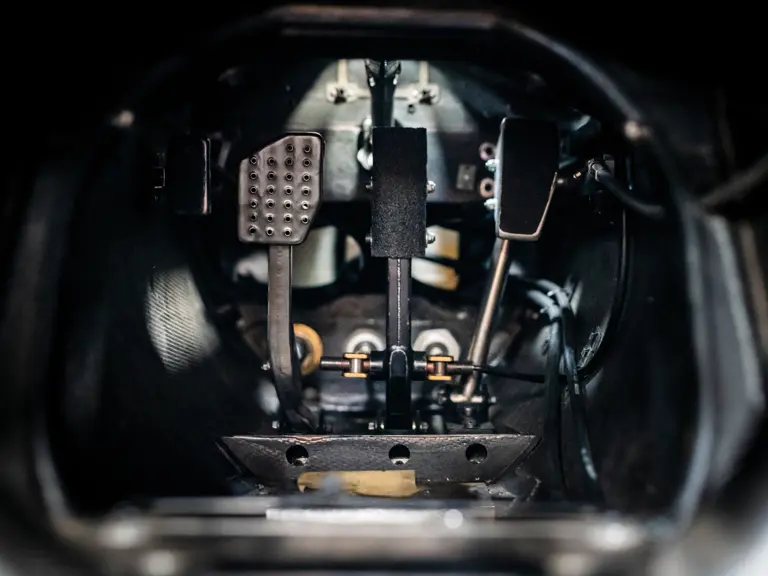
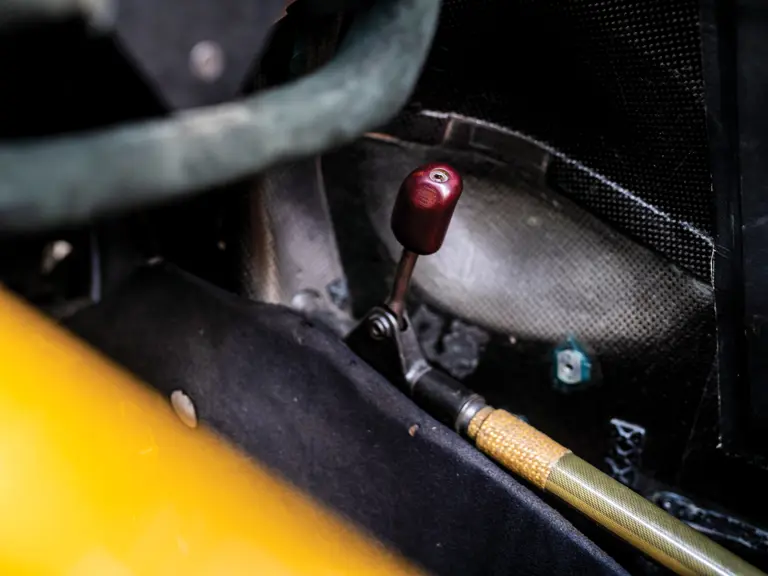
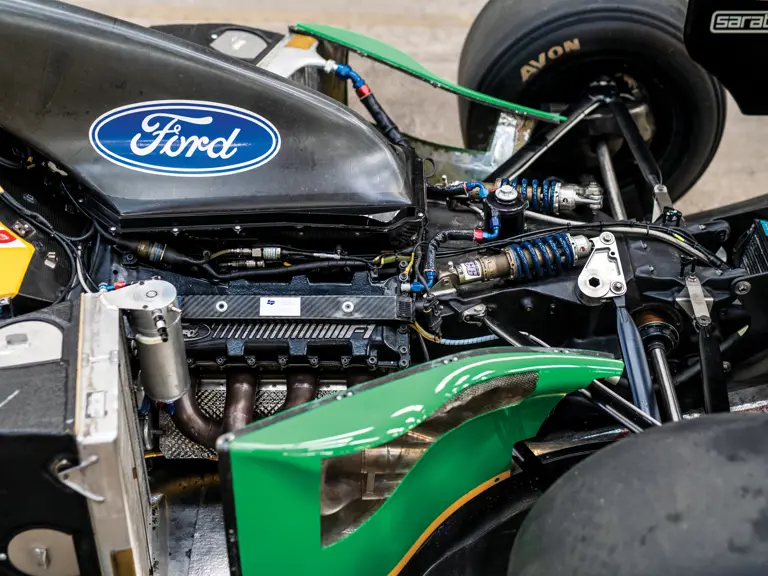
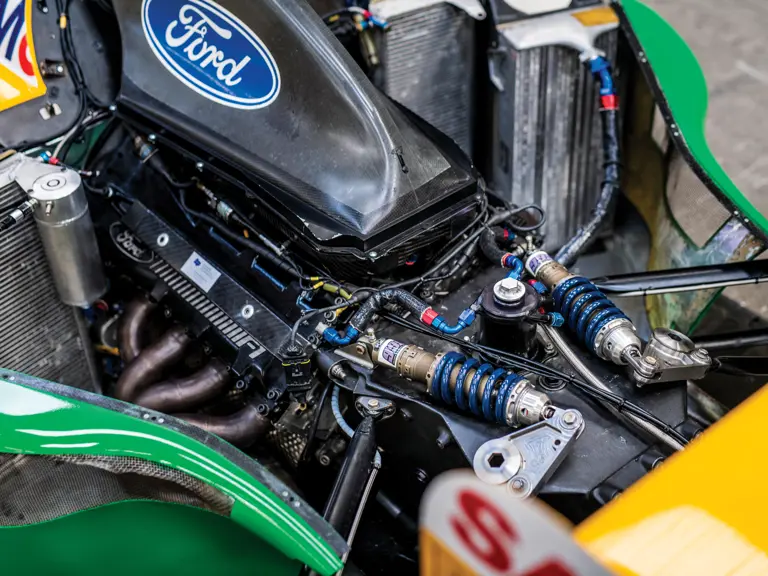
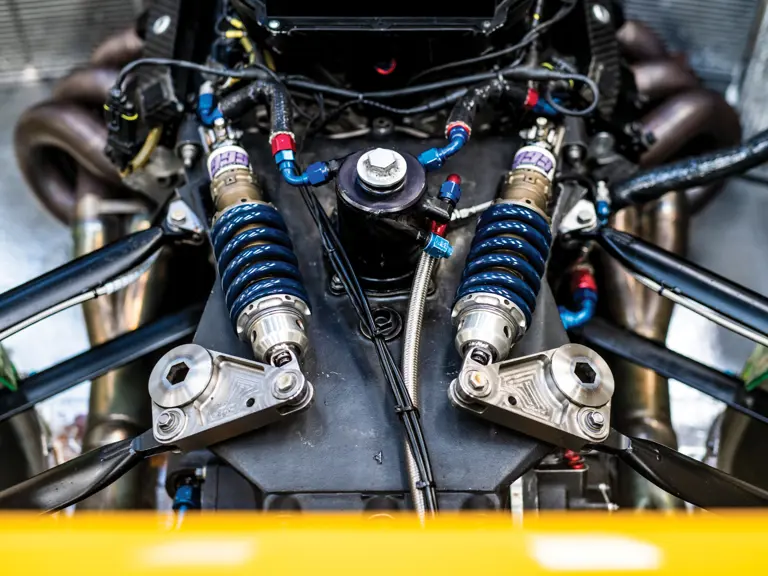
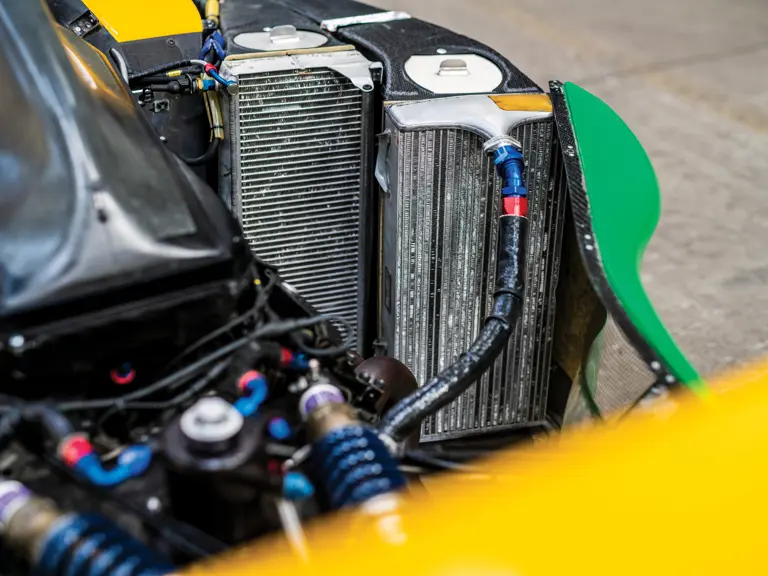
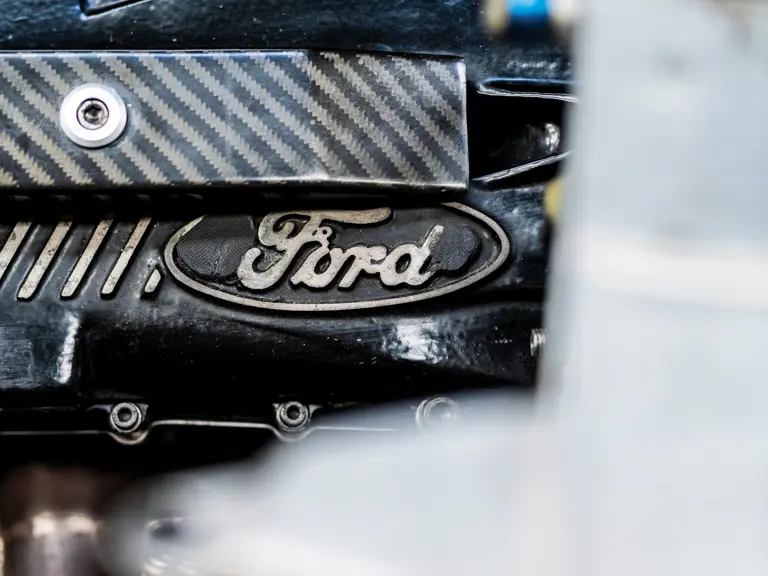
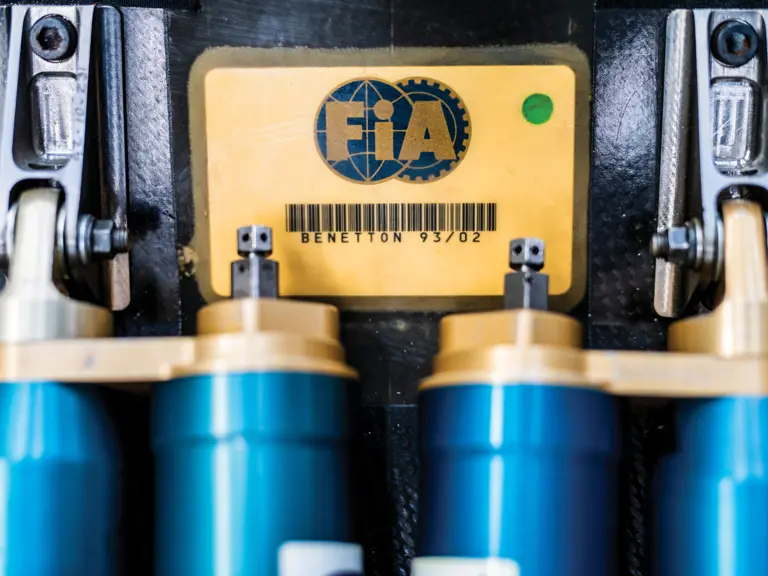
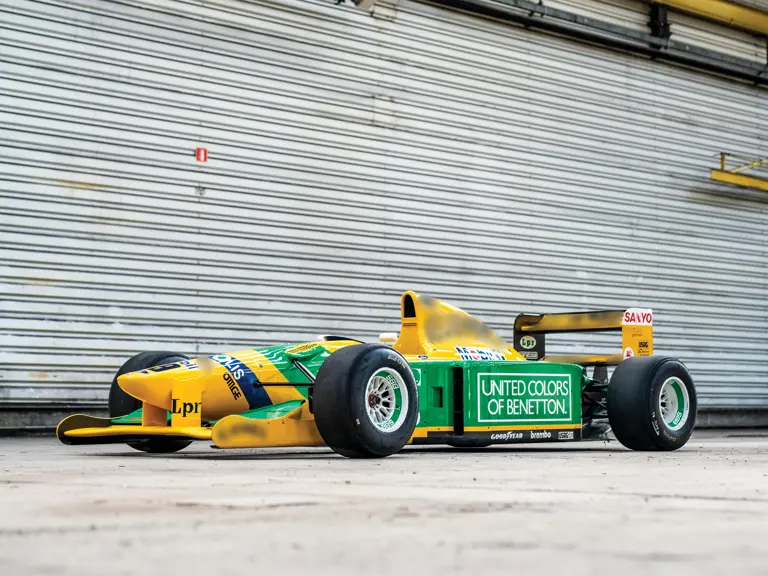
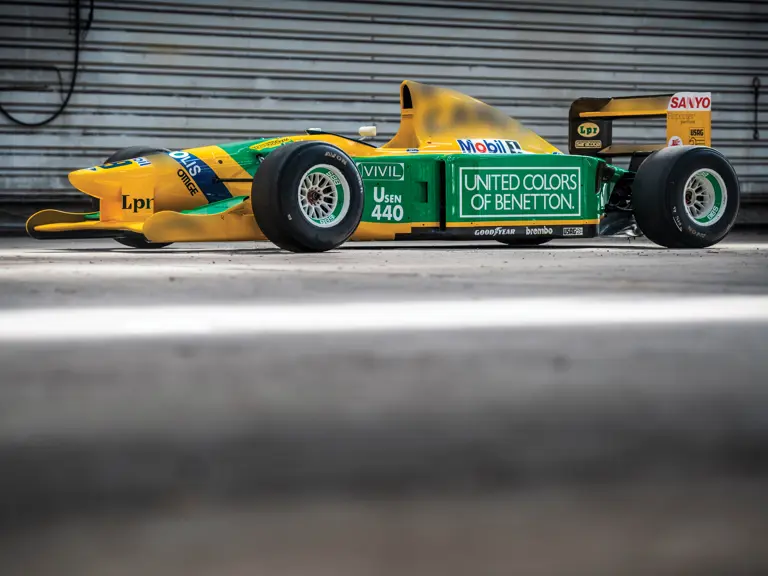
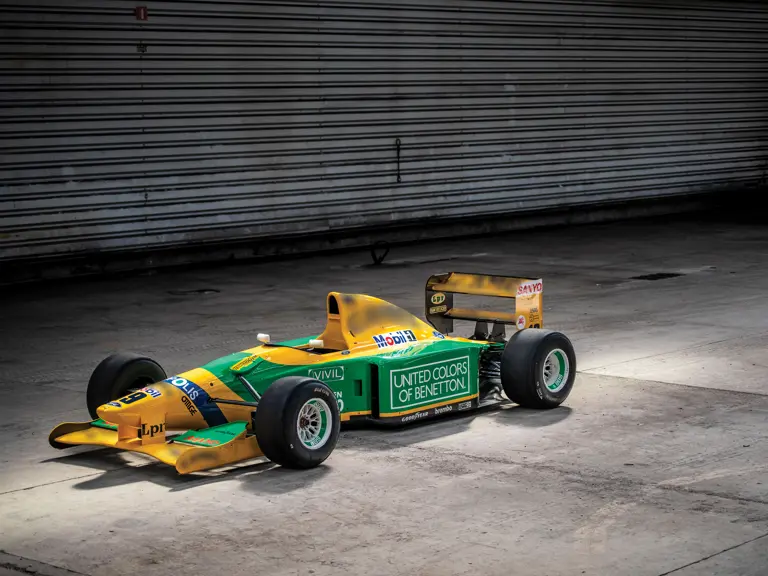
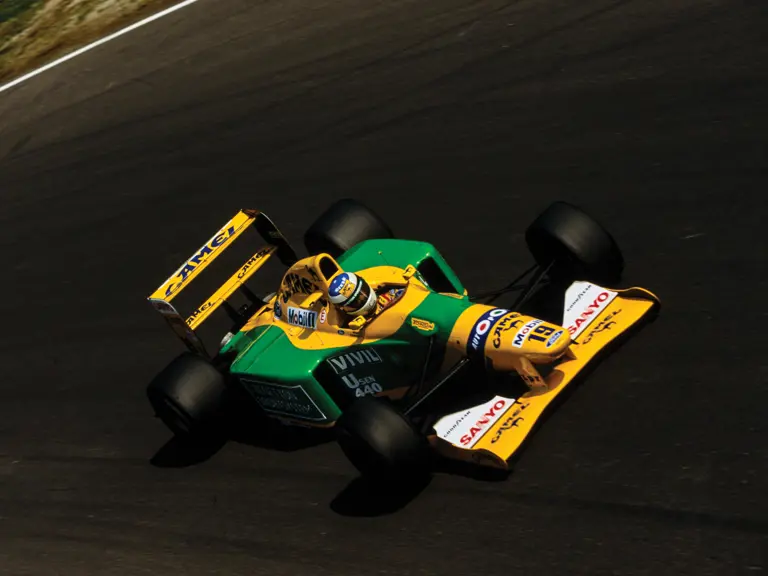
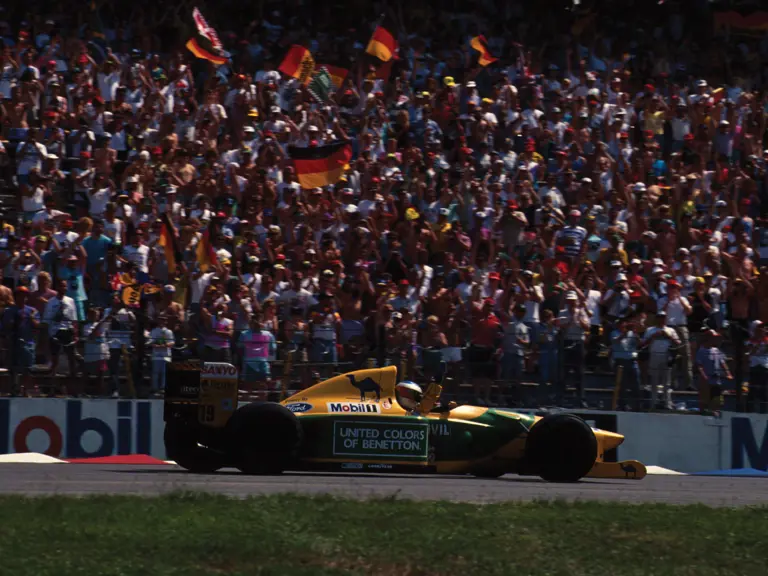
 | Abu Dhabi, United Arab Emirates
| Abu Dhabi, United Arab Emirates
